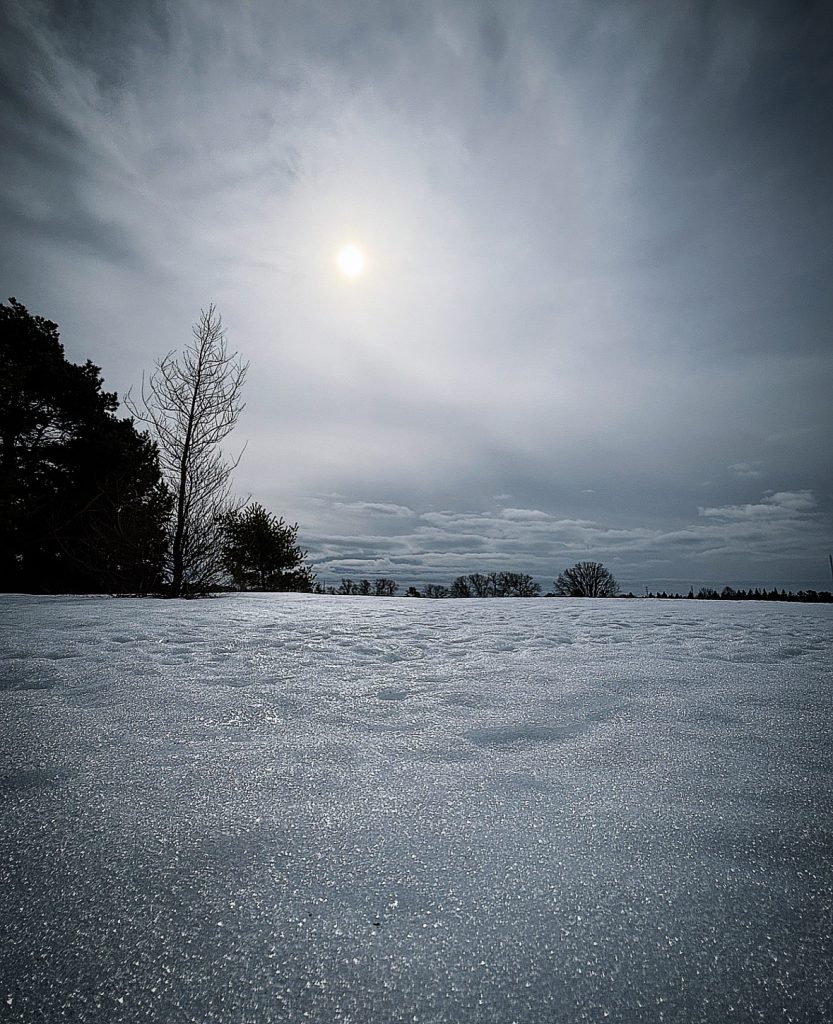Charity
Charity pulled her pistol from her holster, aimed, fired. Her concentration (or was it reluctance?) seemed to require far too much time. Charity, our officer, ordinarily cheery Thalia, one of three Graces, a mom who runs Safety Town, summers on the playground, came when called, came with bullets in her gun.
Inside, my wife governed a raucous birthday party, distracted wild, sticky nine-year-olds with games and cake and kept them clear of windows. Outside, a doe lost all grace, flopped helplessly in our yard beneath the apple tree, her hind leg bent, merely touched by a truck. Usually, her lean, sienna flanks flashed across the lawn, leapt over fences with fawns. Our apples, old, delicious Jonathans, the deer’s delicacy, too near Berlin Road, I’ll cut the tree down.
Inside, kids oblivious, outside, Charity and I shared an intimate glance of regret, this death a loss of elegance. Charity’s gun snapped three times, a jarring, contradictory violence. In her report, Charity accounted for each bullet.
Rod
A neighbor of sorts – office next door, we shared a wall.
A seemingly amiable fellow who lectured on Respiratory Care,
Rod with the Tennessee drawl and folksy anecdotes,
Who drove a pick-up, donned scuffed cowboy boots,
Who voted Republican every damn election – though he wouldn’t fess up,
Whose schizophrenic grandson caused him to see a few things differently,
Rod, the odious, chauvinist, good-ol’-boy bastard who harassed Robin,
Who made her life a living hell until she quit
(I gave her a pill to calm down. Simply listening and nodding was useless. There’s my regret.),
Rod, who, I am unsure why, I treated decently despite our vast differences, didn’t come to work.
A stroke. I sent a card, asked after him. I heard, “Home, therapy, retirement.” That’s that. Though my neighbor, I didn’t pay him a visit, an appalling indifference.
Why needlessly confront mortality with simple courtesy?
It appears my love is not yet unconditional.
David Sapp, writer and artist, lives along the southern shore of Lake Erie in North America. A Pushcart nominee, he was awarded Ohio Arts Council Individual Excellence Grants for poetry and the visual arts. His poetry and prose appear widely in the United States, Canada, and the United Kingdom. His publications include articles in the Journal of Creative Behavior, chapbooks Close to Home and Two Buddha, a novel Flying Over Erie, and a book of poems and drawings titled Drawing Nirvana.





